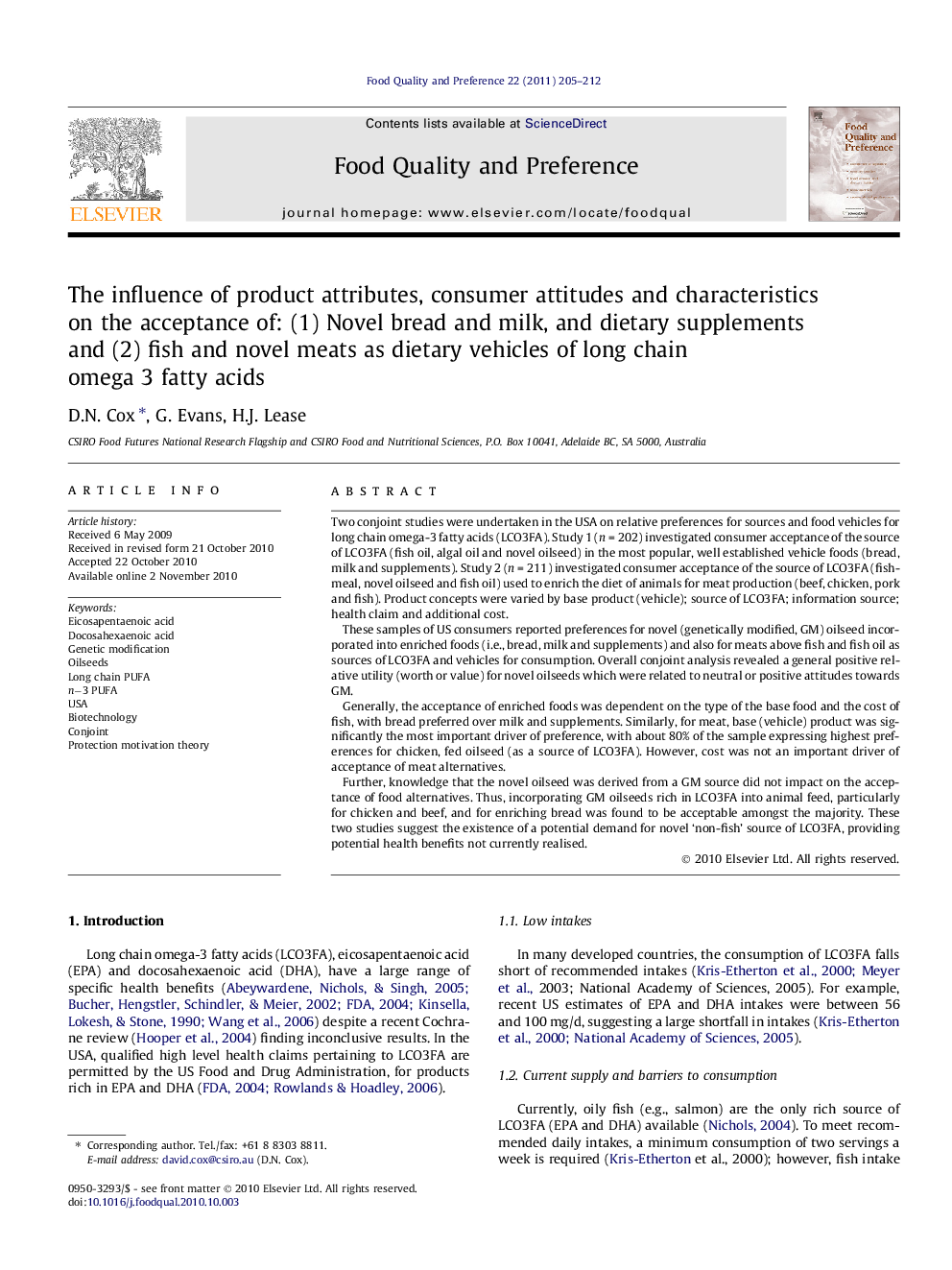| کد مقاله | کد نشریه | سال انتشار | مقاله انگلیسی | نسخه تمام متن |
|---|---|---|---|---|
| 4317519 | 1290599 | 2011 | 8 صفحه PDF | دانلود رایگان |

Two conjoint studies were undertaken in the USA on relative preferences for sources and food vehicles for long chain omega-3 fatty acids (LCO3FA). Study 1 (n = 202) investigated consumer acceptance of the source of LCO3FA (fish oil, algal oil and novel oilseed) in the most popular, well established vehicle foods (bread, milk and supplements). Study 2 (n = 211) investigated consumer acceptance of the source of LCO3FA (fishmeal, novel oilseed and fish oil) used to enrich the diet of animals for meat production (beef, chicken, pork and fish). Product concepts were varied by base product (vehicle); source of LCO3FA; information source; health claim and additional cost.These samples of US consumers reported preferences for novel (genetically modified, GM) oilseed incorporated into enriched foods (i.e., bread, milk and supplements) and also for meats above fish and fish oil as sources of LCO3FA and vehicles for consumption. Overall conjoint analysis revealed a general positive relative utility (worth or value) for novel oilseeds which were related to neutral or positive attitudes towards GM.Generally, the acceptance of enriched foods was dependent on the type of the base food and the cost of fish, with bread preferred over milk and supplements. Similarly, for meat, base (vehicle) product was significantly the most important driver of preference, with about 80% of the sample expressing highest preferences for chicken, fed oilseed (as a source of LCO3FA). However, cost was not an important driver of acceptance of meat alternatives.Further, knowledge that the novel oilseed was derived from a GM source did not impact on the acceptance of food alternatives. Thus, incorporating GM oilseeds rich in LCO3FA into animal feed, particularly for chicken and beef, and for enriching bread was found to be acceptable amongst the majority. These two studies suggest the existence of a potential demand for novel ‘non-fish’ source of LCO3FA, providing potential health benefits not currently realised.
Research highlights
► US consumers reported preferences for novel (genetically modified, GM) oilseed incorporated into enriched foods (i.e., bread, milk and supplements) and also for meats above fish and fish oil as sources of long chain omega-3 fatty acids (LCO3FA) and vehicles for consumption. Overall conjoint analysis revealed a general positive relative utility (worth or value) for novel oilseeds which were related to neutral or positive attitudes towards GM.
► These studies suggest the existence of a potential demand for novel ‘non-fish’ source of LCO3FA, providing potential health benefits not currently realised.
► Patents for the oilseeds studied in this paper have recently been granted. Hence the novel product concepts tested are likely to become a reality in the near future.
Journal: Food Quality and Preference - Volume 22, Issue 2, March 2011, Pages 205–212